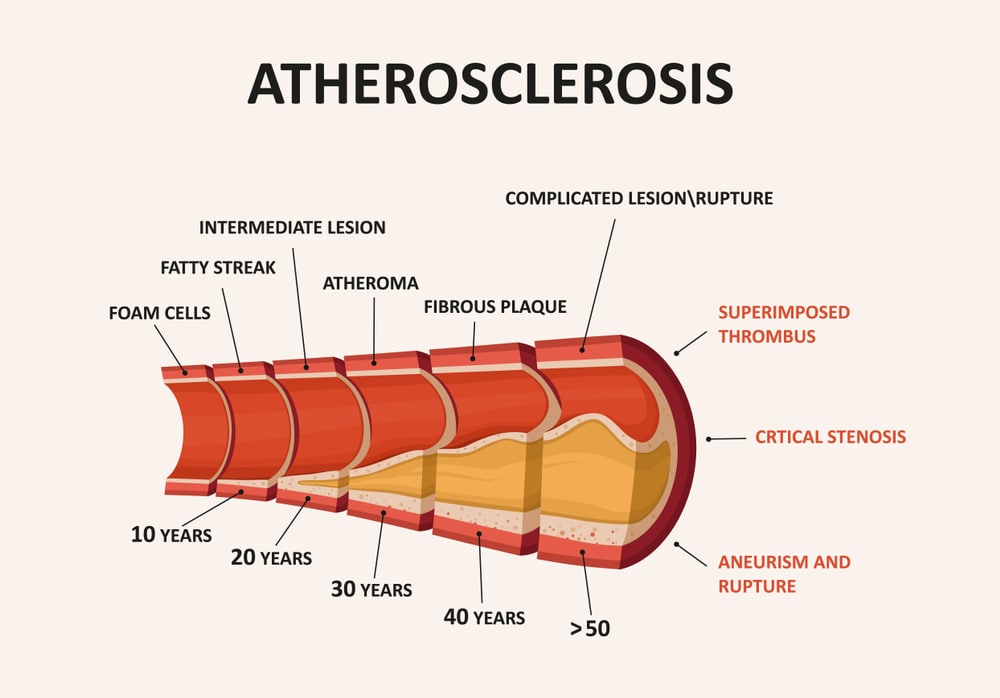Atherosclerosis - Clogged Arteries
Atherosclerosis is the buildup of fats, cholesterol calcium and other substances in and on the artery walls. This buildup is called plaque. The plaque can cause arteries to narrow, blocking blood flow. The plaque can also burst, leading to a blood clot.
Symptoms of moderate to severe atherosclerosis depend on which arteries are affected.
In your heart arteries, you may have chest pain or pressure, called angina.
In the arteries leading to your brain, you may have sudden numbness or weakness in your arms or legs, trouble speaking, slurred speech, sudden or temporary loss of vision in one eye, or drooping muscles in your face. These are symptoms of a transient ischemic attack (TIA). Untreated, a TIA can lead to a stroke.
In the arteries in your arms and legs, you may have leg pain when walking, called claudication. This is a symptom of peripheral artery disease (PAD). You also might have lower blood pressure in the affected arm or leg.
In the arteries leading to your kidneys, you may get high blood pressure or kidney failure.
https://www.mayoclinic.org/diseases-conditions/arteriosclerosis-atherosclerosis/symptoms-causes/syc-20350569

